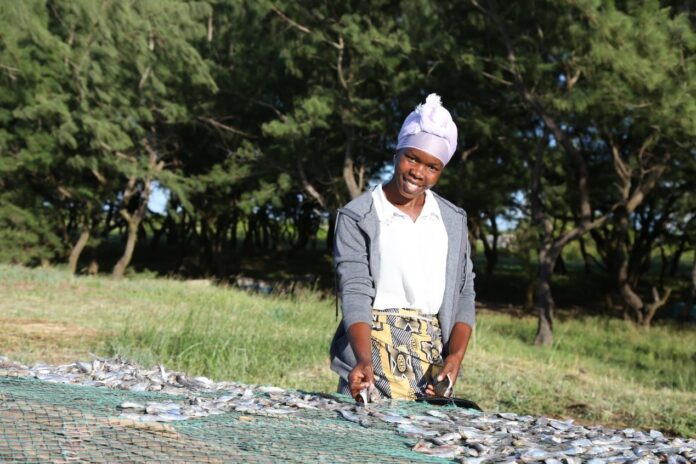The social and economic impacts of the COVID19 pandemic and the Ukraine war are creating significant challenges for the most vulnerable people, increasing the risk to livelihoods and food security in developing countries. The UN’s International Fund for Agricultural Development (IFAD) is therefore stepping up its commitment to promote rural financial inclusion and to safeguard rural communities’ livelihoods with a new US$ 2 million loan to Futuro Mcb.
Rising inflation, food price increases caused by shortages of key commodity crops (wheat, corn, oil seeds), and the rise in fertilizer and fuel prices have impacted all segments of the food system in Mozambique. This includes food production, post-harvest operations, processing, and transport. Small producers and micro, small and medium enterprises (MSMEs) have been hit the worst.
The five-year loan to Futuro mcb, a microfinance bank, will help the institution to expand its financial services to 21,000 small-scale producers and MSMEs in Nampula province, which has the highest number of small-scale producers and is among the poorest areas in the country. Of the 21,000 beneficiaries, 70 per cent will be women/women-led MSMEs and 30 per cent youth, whose economic activities have been especially impacted by the COVID19 pandemic and the ongoing food security crisis. The support from the micro-finance will help them sustain and grow their activities within the local food system.
“The loan to Futuro mcb shows our confidence in microfinance institutions to contribute to income growth and food security in rural communities, and the value we attach to small-scale producers and MSMEs. Futuro mcb is for the first time approaching the debt finance market (national or international), and the whole microfinance sector in Mozambique has not seen any significant debt transactions for a while,” said Thouraya Triki, Director of IFAD’s Sustainable Production, Markets and Institutions division. “Beyond the direct economic impact of our loan through IFAD’s Private Sector Financing Programme, we are seeking to establish a demonstration effect by raising the profile of opportunities to invest in high impact institutions like Futuro mcb”.
Traditional financial institutions often consider rural people unbankable, leaving up to 80 per cent of them without the critical finance they need to sustain their livelihoods. Access to rural financial services is key to helping rural people escape poverty. It stimulates investment, boosts productive capacity, increases incomes and strengthens resilience.
“As the number of microfinance institutions providing rural financial services diminishes in Mozambique, the loan we have received from IFAD is timely. It will enable us to increase our loan portfolio value, raise MSMEs’ working capital to spur growth, increase loan amounts to small-scale producers and offer credit-linked insurance to the population in Nampula province,” said Eduardo Lucchesi, Chief Executive Officer of Futuro mcb.
Financial inclusion of the unbanked through microfinance services has been shown to increase average household income and strengthen their resilience. This is particularly significant for women as it creates opportunities for them to save, manage risk, and gain credit to buy equipment and other farm inputs. In addition to offering investment capital, the initiative will also provide targeted information, education and capacity building to vulnerable groups on digital technologies, financial literacy, business management and insurance.
IFAD’s Private Sector Financing Programme (PSFP) occupies a unique place in the impact investment space, by specifically targeting undeserved entities and prioritizing high impact—allowing much-needed resources to reach players that are not currently served by other organizations.








